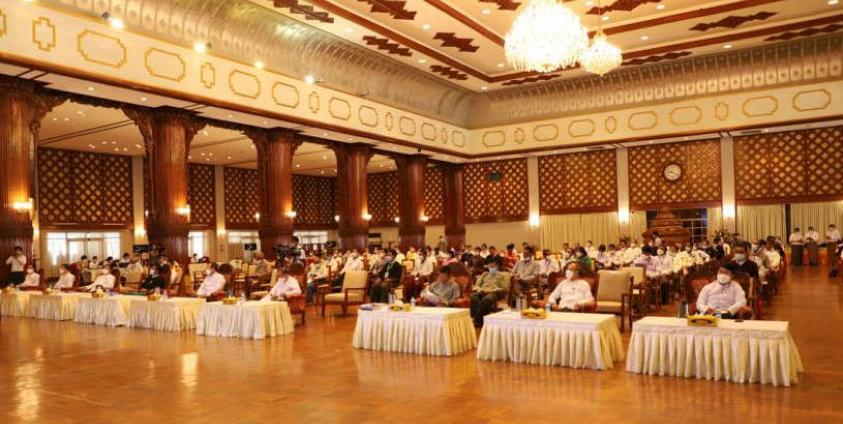State based political parties’ views on Proportional Representation (PR) voting systems should be known, says Nai Tala Nye, spokesperson of Mon Unity Party.
In the first week of November, a meeting took place between the Union Election Commission (UEC) and political parties to discuss potential changes to the country’s national elections, including the potential use of a PR system.
“We think that if we use a PR system, it’s better to apply the First Past the Post (FPTP) system in ethnic areas, while PR should apply in other regions. To summarize election reforms, should enable ethnic parties to win in the elections and to participate in politics. It is to respect the ethnic peoples’ rights,” said Nai Tala Nyi.
Nai Tala Nyi acknowledged there is not a uniform position amongst ethnic groups on the issue of electoral reforms including PR systems.
U Thein Htun, Director of the Organization of Strategy Studies noted that electoral reforms are not straigtforward, as there are various options.
“Generally, there can be several types. But whether it is okay or not, to use a FPTP in ethnic areas — can it be okay for the mainland to only use the PR system? At the moment, the UEC has had a meeting with ethnic political parties. They have presented their reports and discussed them and have had negotiations. It’s too early to say which option is better and what should be done. As I have said before, if the system that is used in the regions and states are different, it can be confusing for the election system,” said U Thein Htun Oo.
The intent of proportional representation systems is to avoid having one powerful single party. There are over 100 countries that use some form of PR system. Those countries use a system that meets their specific realities.Nai Tala Nyi noted that if “a PR system is used in ethnic areas, this should include the ethnic Barmar, who are also an ethnic group. It is important to consider if an ethnic group already occupies a majority status in terms of political power, will PR be useful or not. PR systems may be suitable for some ethnic groups, but not all. We must consider the thoughts of all ethnic groups first.”







